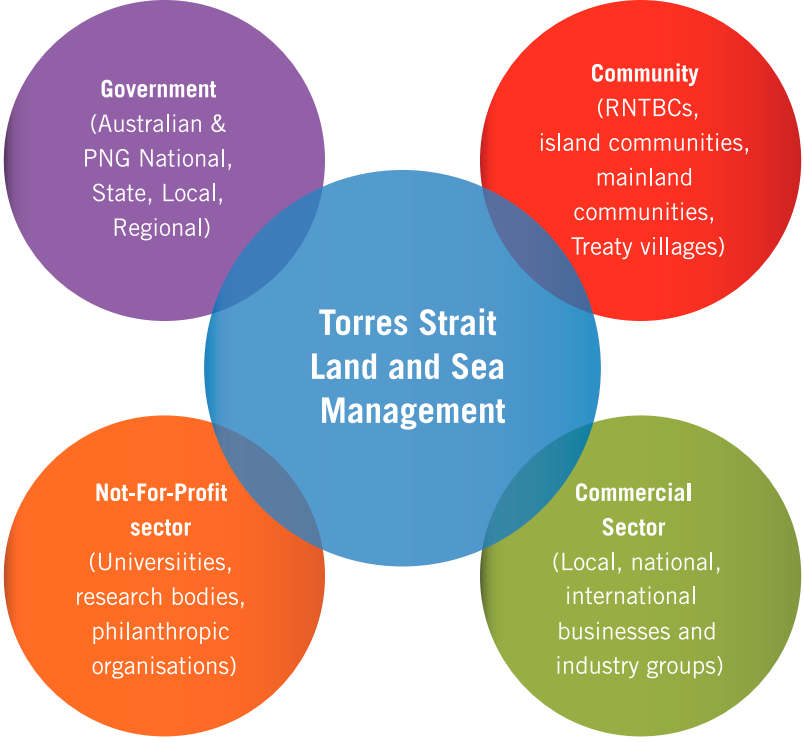-
-
Annual Reports
- Annual Report 2022 - 2023
- Annual Report 2021 - 2022
- Annual Report 2020 - 2021
- Annual Report 2019 - 2020
- Annual Report 2018 - 2019
- Annual Report 2017 - 2018
- Annual Report 2016 - 2017
- Annual Report 2015 - 2016
- Annual Report 2014 - 2015
- Annual Report 2013 - 2014
- Annual Report 2012 - 2013
- Annual Report 2011 - 2012
- Annual Report 2010 - 2011
- Accountability and Reporting
- TSRA News & Media
- Torres Strait Development Plan
-
Annual Reports
The governance arrangements over the Torres Strait environment are complex, involving two countries, local, regional, state and national governments, and native title holders. There are many existing and potential partners in delivery land and sea management in Torres Strait, including Traditional Owners, the community, government, commercial and not-for-profit sector.
The Torres Strait Treaty recognises the importance of the Torres Strait environment and the traditional way of life and livelihood of traditional inhabitants. The Treaty establishes the Torres Strait Protected Zone and various consultative mechanisms, including the Environmental Management Committee.
More than 25 Australian government agencies and departments are represented in Torres Strait because of its unique political features, and strategic location for biosecurity, defence, surveillance and monitoring.
The important role of Registered Native Title Bodies Corporate (RNTBCs) as the recognised holders of native title needs to be respected and reinforced through strong governance and partnership arrangements in collaboration with all other service providers.
Local governments in the region – including the Torres Strait Island Regional Council (TSIRC), the Torres Shire Council (TSC) and Northern Peninsula Area Regional Council (NPARC) – also have a strong role to play in supporting land and sea management.
The research sector, through a variety of partnerships and funding arrangements, has contributed significantly to the improved understanding of the natural and cultural values of the region. To see the latest environmental research, maps and articles about Torres Strait, visit the Torres Strait E-Atlas . Researchers intending to conduct field work or other environmental research activities in Torres Strait should be aware of the following suggested guidelines to assist with their planning.
Into the future, commercial and philanthropic organisations may play an increasingly important role in providing direct and indirect funding and advocacy support for land and sea management initiatives in the region (see Achieving our Vision ).


